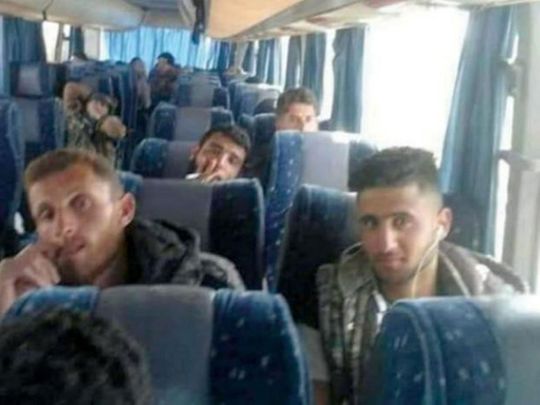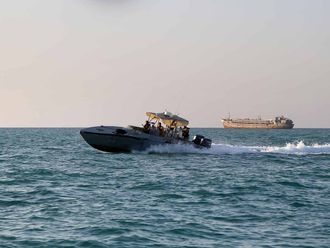
Abu Dhabi
Turkish President Recep Tayyip Erdogan’s statement in February of the presence of pro-Turkish Syrian fighters in Libya, along with training elements from the Turkish military, was the first official recognition by Ankara of sending Syrian fighters as mercenaries, to join the fight alongside the national “reconciliation” government, Headed by Fayez Al Sarraj, backed by Turkey against the Libyan National Army, led by Field Marshal Khalifa Haftar.
“Turkey is there through a force conducting training operations,” Erdogan told reporters in Istanbul on February 21. There are also people from the Syrian National Army, which includes pro-Turkish factions in northern Syria.”
Turkey became militarily involved in Libya, after signing two memoranda of understanding with the Sarraj government in Istanbul on November 27th, on military and security cooperation, and defining areas of influence in the Mediterranean. Syrian fighters appeared for the first time in Tripoli, via clips on social media in December.
Subsequently, assurances were received from entities working to monitor the dispatch of fighters and weapons to Libya, which confirms that Turkey has sent many dibatches of Syrian mercenaries, and some foreign elements that have been involved in the fighting in Syria, to Libya to support the Sarraj government, under the cover of the Memorandum of Understanding in the field of military and security cooperation.
This is what was monitored more than once during the past months, by the Italian “Atalar Radar” website, which specialises in tracking the movement of ship and warships across the Mediterranean, which confirmed with pictures and coordinates that Turkey has established an airlift with Libya to transport weapons and fighters to both Tripoli and Misrata, and that during the past two weeks only 11 military cargo planes were detected flying from Istanbul and Konya (central) Turkey to Tripoli and Misrata, with the return in the other direction.
Also, in late February, the Turkish Ministry of Defense was forced to announce naval exercises in the Mediterranean, after weapons and fighters had been transported to Libya on Turkish warships and commercial ships.
For its part, the Syrian Observatory for Human Rights has repeatedly spoken of transferring batches of Syrian mercenaries in numbers that reached more than 10,000 militants, which was also confirmed by the Libyan National Army.
Ankara imposes strict blackout on the activity of its military in Turkey, and confirms that they are only working to offer advice to the “reconciliation” forces. And it confirmed that it will continue to do so in the coming period, through a statement issued by the meeting of the National Security Council chaired by Erdogan, on Tuesday evening, the bulk of his work was devoted to developments in Libya.
Turkey is also silent about reports of the transfer of weapons and Syrian and foreign mercenaries to Libya, and it did the same thing when the Libyan National Army announced, on May 30, the killing of the leader of the “Sultan Murad Brigade”, (the Syrian mercenary), Murad Abu Hamoud Al Azizi, said to have been “supported by Turkey.”
The “Sultan Murad Brigade” is one of the most militant Syrian factions loyal to Turkey. The Turkish opposition affirms that the government imposes a severe blackout on the losses of its military personnel working in Libya, as well as on its involvement in various ways in the Libyan conflict.
Erdogan used the presence of foreign fighters supporting the “Libyan National Army” as an excuse to send thousands of Syrian fighters as mercenaries to Libya, and he accused Russia last February before announcing the presence of Syrian fighters working with the Turkish military in Libya, of sending 2,500 mercenaries, through a private security company called “Wagner,” which Moscow denied.
Erdogan said that there were about 15,000 from Sudan, Chad and other countries, although a UN committee said there was “no credible evidence” of the presence of Sudanese paramilitary forces fighting with Haftar.
Erdogan’s rhetoric changed after his visit to Russia on March 5. A cease-fire agreement was signed in Idlib, which included joint Turkish-Russian patrols on the Aleppo-Latakia International Road (M4), and he expressed his belief that his Russian counterpart, Vladimir Putin, would take positive steps regarding the elements of “Wagner” in Libya.












